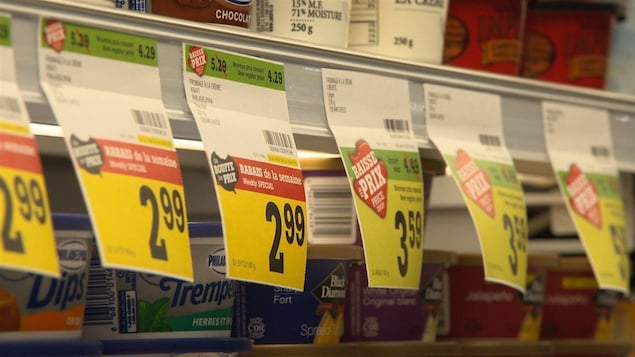If the beginning of the pandemic was marked by a decrease in prices, since the beginning of the year, the trend has been reversed. In January the inflation rate was 1%; It rose to 3.7% in July. Unheard of for nearly 10 years.
Economist Pierre-Andre Bouchard, associate professor at the National School of Public Administration (ENAP), expects a slowdown in this high inflation
, because the financial authorities will likely try to contain it by raising interest rates.
It is also counting on a medium-term exit from the crisis linked to the pandemic. In this case, he believes that eliminating emergency government aid will limit Canadians’ spending and thus curb inflation.
It must be said that overnight, hundreds of thousands of people with modest incomes found themselves with a (taxable) income of close to $2,000 per month. Many of them spent more than expected, which contributed to higher prices.
Prices are also expected to stabilize in sectors where they have strengthened due to border closures, such as construction, imported manufactured goods, recreation, domestic tourism, accommodation, etc.
Mr. Bouchard points out, however, that some factors must continue, in particular climatic events (floods, droughts, fires, etc.) affecting crops, with consequences for fruit, vegetable and grain prices, but also meat prices.
Very tangible repercussions
While waiting for a possible slowdown in inflation, the situation is beginning to worry some consumers who find themselves on tighter budgets.
Such is the case of Lawrence, who met at a supermarket in the Montreal area. Fruits, vegetables, meats, pastries, and ready meals: I noticed that inflation is called upon on most store shelves.
Since the beginning of the year, the grocery bill has gone up by about $50 per week. For two people, his basket went from $100 to $150.
This young professional enjoys a steady income, however she had to make a choice.
Takeaways have increased a lot; It’s my business, but I don’t buy anymore
, she regrets. She also gave up her TV set to make up for her grocery store expenses.
Another supermarket customer, who did not want to be identified, was lured into a promotion after carefully studying the flyers.
Work miracles while not moving from one place to another
, captivates this retiree while stacking cans of soup in her basket. She specifies that the high prices push her to search for deals in various stores in her neighbourhood.
We must pay attention to the budget, otherwise we will break our necks
She concluded by denouncing the fact that pensions are not high enough to satisfy her.
It is already difficult for low-income people
In July, the CPI rose 4.2% in the Montreal region. Transport, housing, food and health.. Inflation is related to the most important sectors of household spending.
There are very difficult calculations and choices at the end of the month.
Johann Le Blanc, budget advisor at Option consommateurs, notes immediate repercussions for people with modest incomes; In particular, recipients of social assistance or pensioners whose compensation amount remains fixed.
And remember, half of all retirees depend on the pensions paid by both governments. These people are below the poverty line
, explains the budget advisor. Since their income does not increase, they quickly find themselves in situations problem
.

“Alcohol scholar. Twitter lover. Zombieaholic. Hipster-friendly coffee fanatic.”

